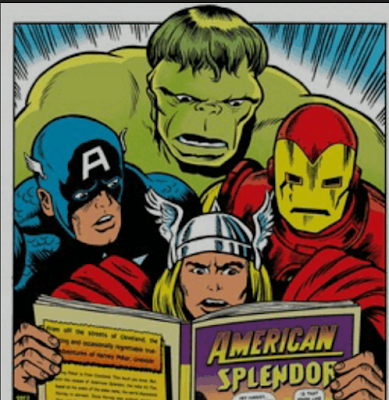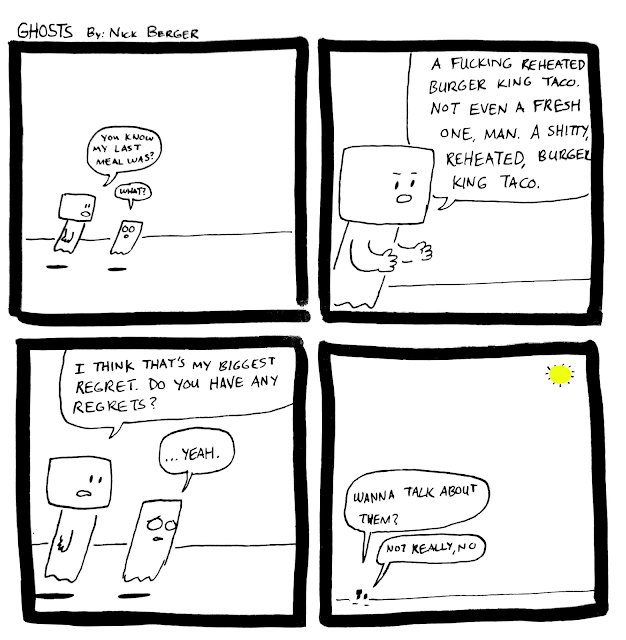Week 15- The Comic Book (Revisited)
I would consider this less of an improvement on my previous version and more of an expansion, as I have more to say on the topic.
The more I've read older comics (and comics styled after them, such as Tom Scioli's Fantastic Four: Grand Design), the more I've come to appreciate them. There's an air of creativity and vision in them that's somewhat lost on modern mainstream comics. You read an issue of Amazing Spider-Man from the 1960s and you get a complete story with a wild new idea, whereas when you read an issue from 2019, you get a small piece of a story that may or may not be riffing on an old idea. That's not to say it isn't well crafted (frankly, this current run is much better than the past decade or so of Spidey books, but that's a whole other discussion), it just feels less satisfying to me.
I mentioned in my previous version that creators seem to be encouraged to write for collections, and I believe that is because publishers like Marvel and DC are chasing the elusive legitimacy of the "Graphic Novel." They saw the respect Maus garnered and they figured that if they put their books in a trade paperback then suddenly people would respect the books more. They wanted to appeal to a larger demographic, and I get that, I'm sure it's made them more money. But for people who read monthly, it sucks. Monthly readers have to read issues that sometimes go absolutely nowhere, with the promise that next month's issue will be worth it. It rarely is. And I stress again, I see this more as a format problem than a content problem.
I've come to appreciate the quicker pacing of older comics, at least when it comes to superhero comics. The quicker pacing lends well to the inherent fun of superheroes. After all, the original point of superheroes is to be fun and inspirational, and that works well when done in smaller bursts. These tighter stories allow writers and artists to explore engaging ideas without having them overstay their welcome. You don't like The Joker? Don't worry, he's not in the next issue. Meaningful stories can be told in single-issues too, such as The Killing Joke and What's So Funny About Truth, Justice, and the American Way? The shorter format allows these stories to express big ideas in a streamlined way that could be lost if they were mini-series. Also, when this way of storytelling was in vogue, it made mini-series and events more impactful. Long-running storylines were the exception in mainstream superhero comics, and that made them more exciting.
I want to clarify a few things here. First of all, this is not a condemnation of graphic novels or trade paperbacks. Contrary to how I come off in this post, I actually tend to prefer reading collections over single issues. However, I do also read monthly, so this does bother me. Second, I don't think modern comics need to completely go back to "the good old days" back before I was born. There are many strides taken in modern commercial comics that are fantastic. As much as I love Golden Age and Silver Age art, I can't deny that the art in comics has, as a whole, vastly improved. I have no idea where I'd be as an artist without people like Skottie Young or Mike Mignola. Writing overall has also gotten better. Characters tend to be more realistic and relatable and the pacing within individual issues is a little less messy. Of course, we have more diverse creators who bring their unique perspectives to their projects which results in more genuine and interesting stories. Finally, I want to stress that this mainly relates to mainstream superhero comics, ergo Marvel and DC. Especially Marvel. I'm aware that DC is doing a lot of interesting things right now. Their Black Label, for example, is filled with mini-series that are only three issues, and the stories are great. They're pacing is fantastic and their stories are tight. I don't think the industry needs to go back to the 1960s, but I do think Marvel and DC need to be honest about what's better for the stories they want to tell.




Comments
Post a Comment